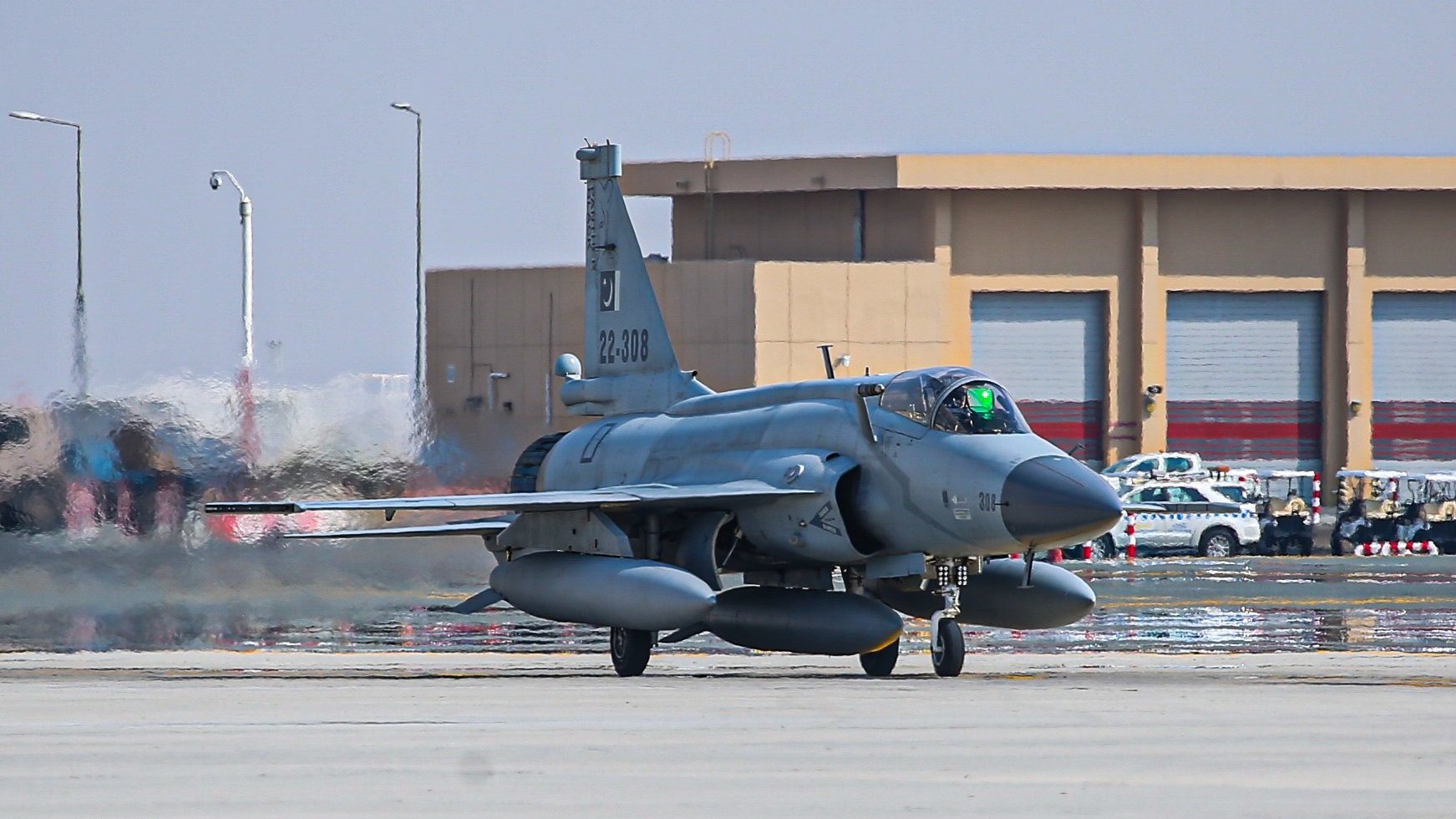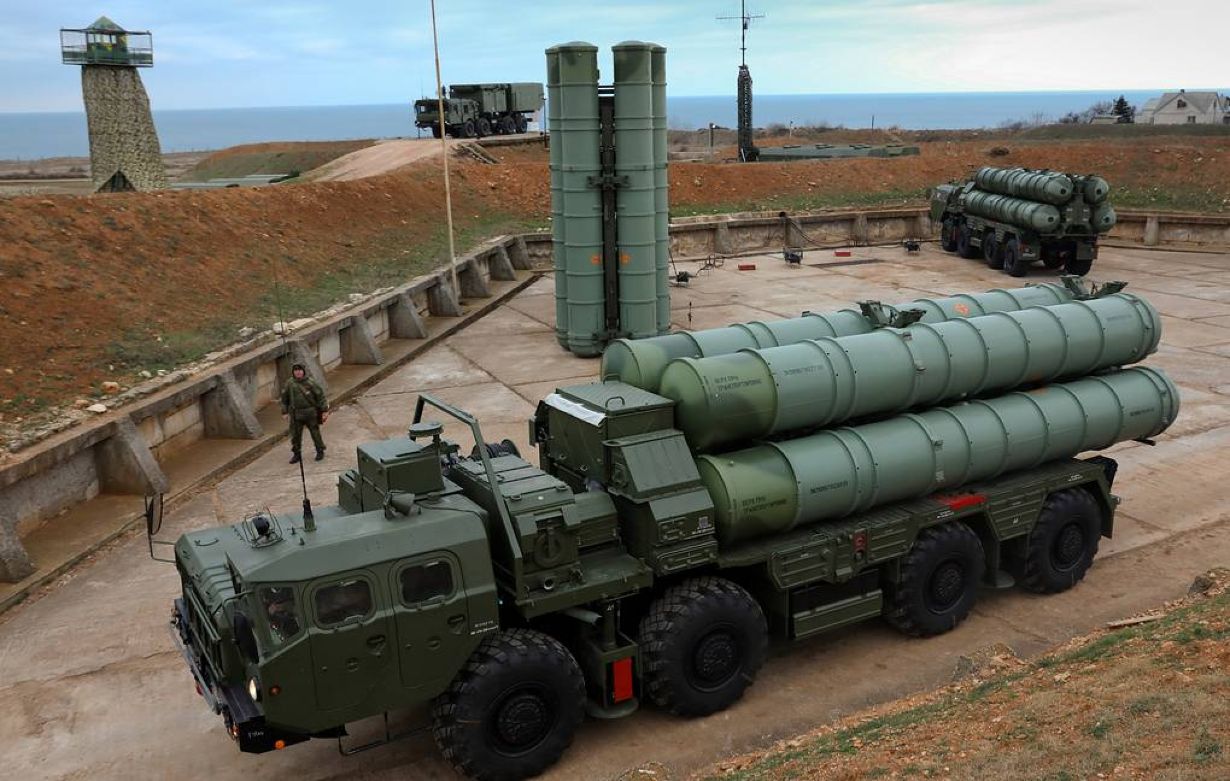With no forward movement on the procurement of F-16 fighter jets and Germany stonewalling its attempts to acquire the Eurofighter Typhoons, a desperate Turkey could even turn to China-Pakistan co-developed JF-17 Thunder, as per reports.
Russia Blindsides China; Establishes Alternative Supply Route To Acquire Its Military Drones – US Report
Germany’s opposing Anakra’s request to acquire Eurofighter Typhoon has invited severe criticism from the Erdogan administration. Turkey announced in November 2023 that after getting a cold shoulder from the US, it requested the UK and Spain to sell 40 Eurofighter jets, an idea that did not seem palatable to Germany. Eurofighters are produced by a consortium involving Germany, Spain, Italy, and the United Kingdom.
So far, Ankara has been hopeful that Germany will come around. But, Germany has not been convinced to change its stance.
“We are a NATO member, yet another member opposes us buying these aircraft,” Turkey’s Defense Minister Yaşar Güler said. “There cannot be an explanation for an ally saying, ‘I won’t give you the aircraft,'” Güler said in an interview with private broadcaster NTV.
Around the same time, news started circulating in Turkish media that the Chinese-Pakistani co-manufactured JF-17 was a viable option for the country to ramp up its air power.
French-made Dassault Rafale and Swedish-built SAAB Gripen are also leading fourth-gen fighters in the market. However, due to the US and German-made parts in the fighter jets, they are not a viable option for Turkey as it stands alone in the NATO alliance after purchasing the Russian S-400 air defense system.
The other options for the Erdogan administration are Chinese or Russian-made fighter jets. However, as reported by the EurAsian Times earlier, Erdogan has hinted that Turkey could buy the Russian-made Su-35s and Su-57s.

Apart from the risk of further alienation, the Russian warplanes were technically lacking and expensive to integrate with Turkey’s existing US-sourced military hardware. Also, the Turkish Defence Ministry found that adapting to the Russian system would be more tedious.
Turkish President has said Ankara’s interest in military jets was not limited to Eurofighter. “We have already given our answer. If they give us these planes, they give them. If not, do we lack doors to knock on? No, we have many,” Erdogan said after his trip to Berlin in November 2023.
He also referred to Turkey’s purchase of Russian S-400 air defense systems that can detect NATO aircraft. Consequently, in 2019, Turkey was excluded from the program to acquire American F-35 stealth fighters.
Turkey has tested but never formally used the Russian-made systems. Yet, it has warned that it would use them if needed. It has also developed a family of short–, medium– and long-range surface-to-air missile systems. “If someone considers attacking us, they will see very well what the S-400 or other defense systems can do,” Güler said.
It remains to be seen if Ankara will dare to defy NATO again and opt for the Chinese-Pakistani-made JF-17 ‘Thunder.’ Even though integrating it with existing ammunition would be tricky, it would help maintain some parity with Greece’s Air Force, which is expected to have a technologically more advanced fighter fleet in a few years.
Athens expects to take delivery of the last of the 4.5-generation Dassault Rafales F3R fighters — it purchased 24 — from France by January 2025.
JF-17 Replacing F-16s?
If Turkey decides to make good on its threat of knocking on other doors, the JF-17 can be a suitable replacement for its aging F-16s. After all, it worked for Pakistan. Pakistan Air Force has deployed JF-17 for its counter-terrorism operations, and the latest block-III variant is estimated to cost around US$32 million.
In contrast to the F-16, the JF-17 is designed to deploy Chinese weapons on its seven hardpoints, including the PL-5 short-range air-to-air missile, LS-6 ‘Thunderstone’ GPS-guided glide bombs, and YJ-12 supersonic and YJ-83 subsonic anti-shipping missiles. Though not directly integrated, the JF-17 can also carry electro-optical/infrared sensors and self-defense jammers on external pods.
While the JF-17 is not really comparable to cutting-edge F-35 or J-20 stealth fighters and even warplanes like the Rafale and Su-35, it is quite capable for its price, particularly once it integrates AESA radar and the PL-10 missile. If Turkey has to acquire non-Western fighters, the ideal choice could be Russian Su-35S Super Flankers, but that would further antagonize the West.
The purchase of fighter jets is required to plug the capability gap until Turkey’s indigenously developed fifth-generation fighter jet, KAAN, enters the operational fleet by 2034. Its maiden flight is expected on December 27, 2023.
Bosphorous Wedge Between Turkey, NATO
The past five years have been tumultuous for the Turkey and NATO relationship with disagreements on Syria policy, Ankara’s growing proximity with Moscow, its naval ambitions in the eastern Mediterranean, and Istanbul’s eroding human rights record. Despite this, NATO hopes that Erdogan will not go against the military alliance, given Turkey’s accession to the European Union.
The sentiments in the US Congress against Turkey’s betrayal by going ahead with the S-400 surface-to-air missile seem intractable. The US has opposed the purchase because the S-400 system can help Russia glean tactical information on US weaponry and military operations, as the air defense system can track the F-16s.

US President Joe Biden’s administration has repeatedly promised to move forward with the US$20-billion sale. Still, there have been objections in the US Congress over Turkey’s delaying Sweden’s bid to join the NATO alliance. Last week, Erdogan signaled that the Turkish Parliament will only act on Sweden if the US Congress approves its F-16 request.
“If you have your Congress, I have my Parliament. You say you will take steps on the F-16 issue after passing it through Congress. I also have a Parliament,” Erdogan said. “If we are two NATO allies, do what you must simultaneously. In solidarity, our Parliament will take the necessary decision.”
- Ritu Sharma has been a journalist for over a decade, writing on defense, foreign affairs, and nuclear technology.
- She can be reached at ritu.sharma (at) mail.com
- Follow EurAsian Times on Google News




